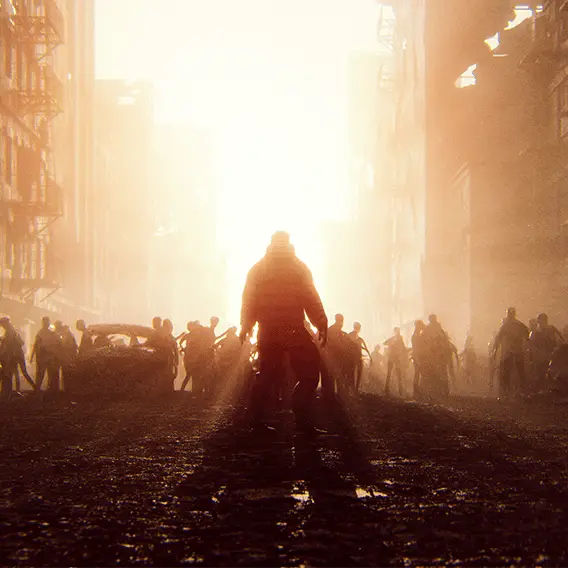
Zombie movies, games and TV shows have been all the rage for years now - but it's not just a pop culture trend, scientists are actually into it, too.
A team from Aalto University in Finland decided to do some research into just what a zombie apocalypse might look like if they modelled it out across the whole of Helsinki.
Well, according to their conclusions - published in October 2023 - things would go significantly worse than even some of the most pessimistic zombie movies out there.
They estimated that it would take less than a day between the very first person turning into a zombie and either the entire zombie population needing to be eradicated, or the city becoming overrun.
Advert

In fact, they wrote that it would take some seven hours to reach this tipping point, and that if the virus wasn't successfully contained by then it would almost inevitably overrun the entire country quite quickly.
Compared to traditional epidemic modelling, the team had to modify their programs quite heavily to account for the fictional disease - factoring in zombies moving around the country, and for the aggression they'd show in trying to infect people.
Still, they ran into quite a lot of challenges while building these models, as their team leader Professor Lauri Viitasaari explained: "What's the right probability for a human winning an encounter with a zombie? The problem is that we're walking blind here, because real data on such questions is severely limited."
Of course, given how we lived through a global pandemic very recently, it's no wonder that the spread of a fictional disease like this is still at the forefront of many researchers' minds.
As the study concluded, even when you're modelling out a disease or outbreak that doesn't actually exist (as far as we know), it can help to come up with hypothetical problems that we need to solve.

The team put it this way: "The zombie plague simulation offers a way to explore the effects of different interventions and consider them in the context of diseases with different features, such as how quickly they spread or how severe they are.
"Because it simulates individuals' actions, it can also be used to test how disinformation would affect the spread of an epidemic (eg, by having some 'zombie deniers' ignore warnings)."
Given the prominence of the anti-vaccine movement in many parts of the world during and after the Covid-19 pandemic, this isn't exactly hard to believe.
Still, this all adds an interesting twist to the classic conversation of how long you think you'd survive if zombies really did come to town - chances are, it's much shorter than you might think!